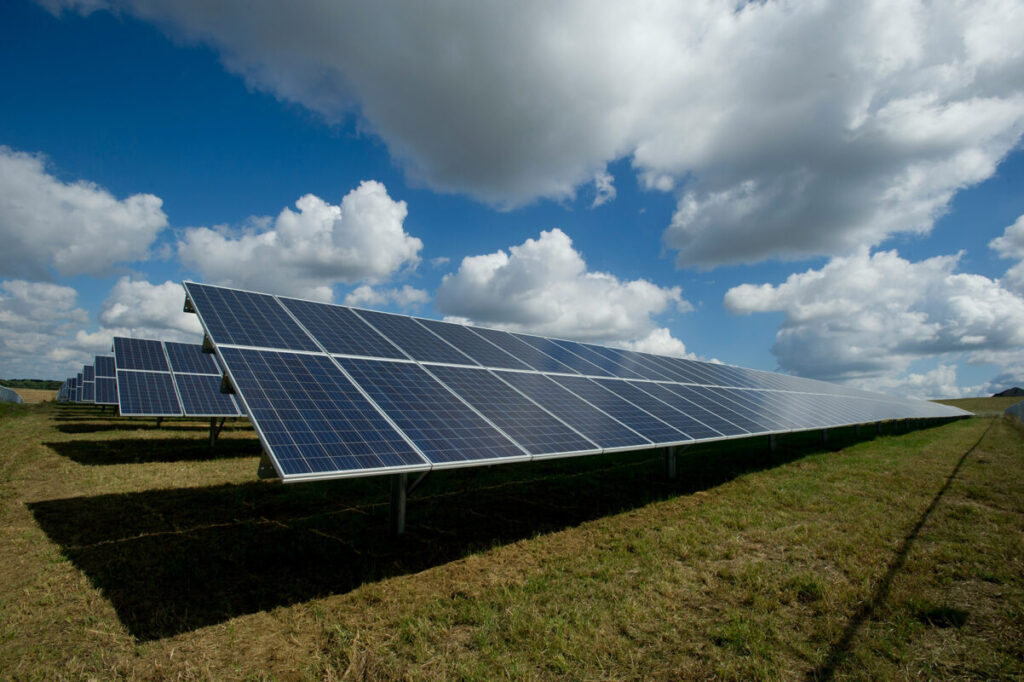
A legal challenge against the development of the 500MW Sunnica Energy Farm solar project has been abandoned after two councils have withdrawn from the process.
As confirmed on Wednesday (21 August), West Suffolk Council and Cambridgeshire County Council withdrew from the process and, as a result, Suffolk County Council and East Cambridgeshire District Council were also forced to abandon the legal challenge.
In a statement, Suffolk County Council said it abandoned the challenge due to the “cost of legal fees versus the likely financial return in a successful outcome”. The council emphasised that this made it no longer justifiable to use public funds.
The Sunnica Energy Farm on the Suffolk-Cambridgeshire border has been deemed a nationally significant infrastructure project (NSIP) as its output exceeds 50MW. Readers of Solar Power Portal will be aware that the newly elected Labour government recently outlined plans to increase the NSIP threshold for solar PV projects to 150MW.
Projects are subject to differing development pathways as part of being an NSIP. For instance, an NSIP must submit a development consent order (DCO) application, which the National Planning Inspectorate examines and recommends approving or rejecting. The Secretary of State, Ed Miliband, has the final say.
Despite several delays under the Conservative government, Sunnica’s 500MW project was awarded a DCO last month (12 July) alongside fellow solar PV proposals, the 350MW Mallard Pass and 500MW Gate Burton solar projects.
Developer Sunnica Ltd is a joint venture (JV) between Tribus Energy and PS Renewables, both focused on developing UK projects of 50MW or larger.
Councillor condemns ‘outrageous decision’ by Labour government
Councillor Richard Rout, Suffolk County Council’s deputy cabinet member for NSIPs expressed the council’s “deep disappointment” at West Suffolk Council and Cambridgeshire County Council for abandoning the legal process, stating the decision to award the project was an “outrageous decision” by the government.
“The Sunnica solar farm was approved by the new government against the recommendation of the independent Planning Inspectorate, who said it should be thrown out. In pulling out of this challenge, the two councils have demonstrated they are intent on serving the interests of the government over the interests of local communities and taxpayers,” Rout said.
“This is the worst scheme we have ever dealt with and the developer has, to date, shown no interest in properly meeting our costs or properly engaging with local communities.”
Councillor Anna Bailey, leader of East Cambridgeshire District Council, added that the council will “work to do all it can to mitigate the impact of the Sunnica development, secure local benefits and to stand by its residents”
Suffolk County Council added that the Secretary of State made a legal error, however, it is unable to now test the case in court.
Cleve Hill NSIP successfully appeals council refusal for energy storage system
Elsewhere in the UK, the Cleve Hill Solar Park, also known as Project Fortress, successfully appealed Swale Council’s decision to refuse consent for the co-located 150MW battery energy storage system (BESS), as reported on 11 July.
The 373MW solar-plus-storage project, recognised as the first solar NSIP to begin construction and acquire a DCO, had seen the BESS element of its project refused by Swale Council with residents fearing the use of lithium ferrophosphate (LFP) batteries.
However, in a win for large-scale solar farms, the decision was successfully appealed, and the council’s conduct was determined unreasonable. As a result, the council was required to pay the developer’s appeal costs, and the project can go ahead.

